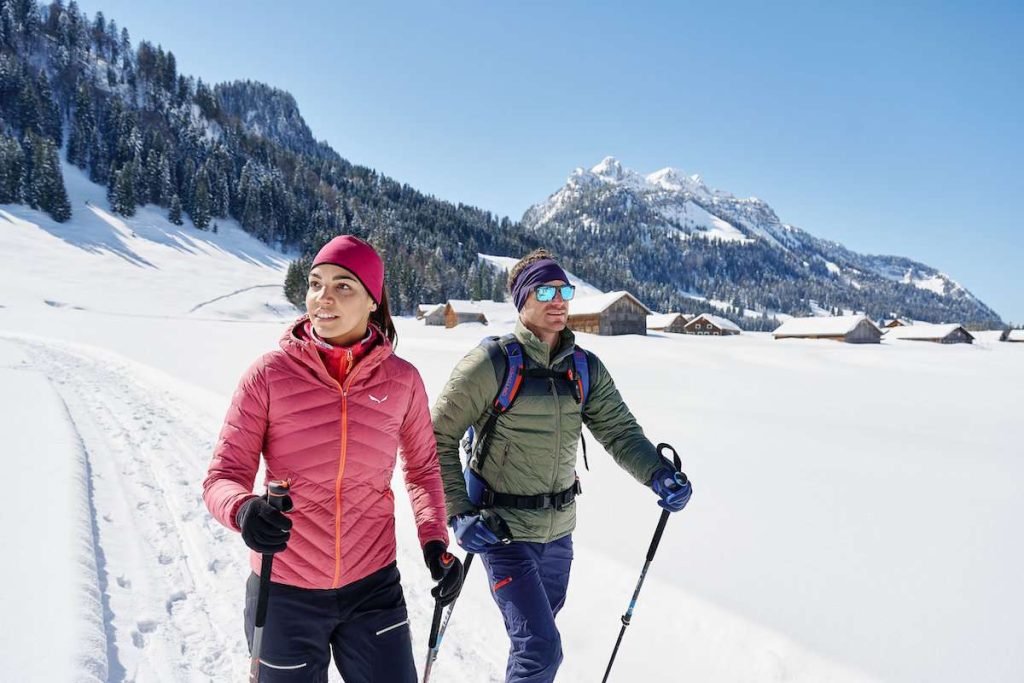Winter hiking:
Winter hiking is possible on all hiking trails that are walkable in winter. Calorie consumption per hour of winter hiking is around 250 kilocalories. Exercise in the sun and fresh air releases serotonin, the “happiness hormone”, which counteracts both physical stress reactions and the “winter blues”, thus lifting the mood. Winter hiking is particularly suitable for overweight people and those affected by metabolic syndrome (high blood pressure, abdominal obesity, fat metabolism disorders and increased blood sugar levels). Winter hiking reduces physiological parameters such as blood pressure and heart rate, aids weight loss and improves cholesterol and sugar metabolism.
Studies of medical evidence:
- Indication: respiratory function; allergic rhinitis and/or asthma (Prossegger, Huber, Grafetstätter, Pichler, Braunschmid et al., 2019): evidence level Ib
- Indication: metabolic syndrome (Neumayr et al., 2014): evidence level Ib
Health tourism potential:
- Development of offers in combination with other natural resources (e.g. bal- neotherapy, waterfalls, etc.).
- Development of target-group specific products (e.g. hiking trails with different characteristics for specific indications such as cardiorespiratory fitness, chro- nic back pain, etc.) with reference to increasing levels of lifestyle diseases.
Ice skating:
Whether on a lake or on prepared rinks in the city, ice skating is a popular winter sport. It is not only fun and easy to learn, but also very healthy. Ice skating is a form of moderate endurance training and an ideal aid in losing weight. Gliding over the ice is therefore beneficial for the cardiovascular system, also improving coordination, balance and body control when skating. It trains many muscle groups, especially the thighs and the back, but also the buttocks and the arms as they swing. Like outdoor running, ice skating stimulates the blood circulation and helps the body to cope better with temperature fluctuations. Additionally, the fresh air strengthens the immune system.

There is considerable medical evidence concerning ice skating and its effects on the human body, but only as regards elite athletes. Evidence of the medicinal impact of ice skating in the amateur sector is lacking.
In summary, the Alpine region offers a wide range of physical activities from which numerous tourist leisure activities can be derived. These activities are generally healthy and beneficial to the body, even if medical evidence is lacking for some of the activities mentioned as regards the amateur or leisure areas. One possible variation for non-snow-based activities is represented by themed walks. In the health tourism sector, there is still a need for research in this area to determine the actual health effects.
Download a PDF:
Enter your E-Mail address, and get a pdf to review later.